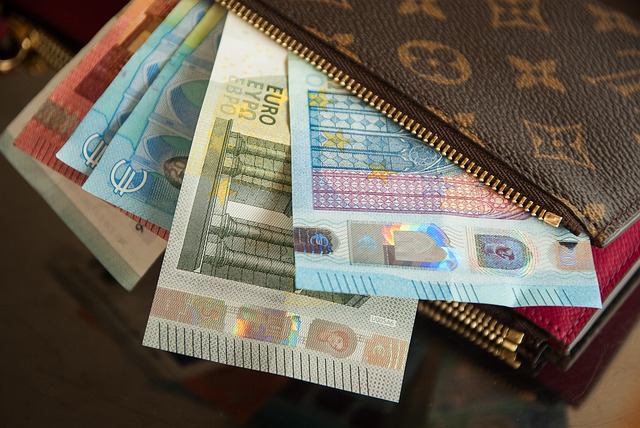Understanding Crypto Wallets for Digital Assets
Author: Jameson Richman Expert
Published On: 2025-05-06
Prepared by Jameson Richman and our team of experts with over a decade of experience in cryptocurrency and digital asset analysis. Learn more about us.
A crypto wallet is essential for anyone looking to engage with cryptocurrencies, providing a secure way to store, send, and receive digital currencies. In this article, we will delve into the various types of crypto wallets, their features, benefits, and how to choose the right wallet for your needs. Understanding crypto wallets can significantly enhance your experience in the ever-evolving world of cryptocurrencies.
As cryptocurrencies gain popularity, the need for secure storage solutions has never been more critical. A crypto wallet serves as a digital safe, allowing users to manage their cryptocurrency holdings safely. While some may think that simply using an exchange to store their coins is sufficient, this approach often overlooks the security and control that dedicated wallets provide. In the sections below, we will explore the different types of wallets, their pros and cons, and how they can impact your crypto journey.

Types of Crypto Wallets
There are primarily two categories of crypto wallets: hot wallets and cold wallets. Understanding these categories can help users make informed decisions based on their trading habits and security needs. Hot wallets are connected to the internet, making them convenient for regular transactions. However, their online nature can expose them to various security threats. Cold wallets, on the other hand, are offline storage solutions that provide an extra layer of security, making them ideal for long-term asset storage.
Hot Wallets
Hot wallets include web wallets, mobile wallets, and desktop wallets. They are user-friendly and allow for quick transactions, which is particularly beneficial for active traders. However, because they are connected to the internet, they are more vulnerable to security breaches. Users should carefully assess the trade-off between convenience and security when choosing a hot wallet.
- Web Wallets: These wallets are hosted on the cloud and can be accessed from any device with internet connectivity. They are often provided by exchanges like Binance, allowing users to trade easily. While they are accessible, it is important to use reputable platforms to minimize risks. Many web wallets also offer additional features such as built-in trading functionalities and integration with decentralized finance (DeFi) applications, enhancing the user experience. Users should be wary of phishing attacks and ensure they use two-factor authentication to secure their accounts. Additionally, some web wallets provide enhanced privacy features, such as anonymous transactions, which can be beneficial for users prioritizing confidentiality.
- Mobile Wallets: Designed for smartphones, these wallets enable users to manage their assets on the go. Popular options include Trust Wallet and Coinbase Wallet. Mobile wallets often offer features like QR code scanning for easier transactions but may also expose users to risks if their devices are lost or compromised. Some mobile wallets come equipped with advanced security features like biometric authentication, enhancing their safety for everyday use. Regular updates and ensuring that the device's operating system is secure can mitigate risks associated with mobile wallets. Furthermore, some mobile wallets provide integration with hardware wallets for added security during transactions.
- Desktop Wallets: Software downloaded onto a computer, desktop wallets provide more control and security compared to web wallets. Although they can be compromised if the device is infected with malware, they are generally more secure than web wallets due to limited exposure to the internet. Desktop wallets often allow users to run their own nodes, giving them greater privacy and control over their transactions. Users should ensure their computer is protected with antivirus software and maintain regular backups of their wallet data. Additionally, desktop wallets may offer advanced features like multi-signature support, which requires multiple private keys to authorize a transaction, enhancing security for joint accounts or shared wallets.
Cold Wallets
Cold wallets are ideal for long-term storage and include hardware wallets and paper wallets. While they lack the convenience of hot wallets, their offline nature provides unmatched security. Users who prioritize safety over convenience typically opt for these types of wallets. Cold wallets are especially recommended for holding large amounts of cryptocurrencies or for assets that are not intended for frequent trading.
- Hardware Wallets: These are physical devices that securely store your private keys offline. Popular models include Trezor and Ledger. Hardware wallets offer robust security features, including encryption and PIN protection, making them a popular choice for serious investors. It's important to purchase these devices directly from manufacturers to avoid tampering. Many hardware wallets also support multiple cryptocurrencies, making them versatile for users with diverse portfolios. Users should always keep the firmware updated and use secure recovery options to safeguard against theft. Additionally, some hardware wallets allow for the creation of separate wallets for different purposes, such as daily transactions and long-term storage, enabling users to compartmentalize their assets effectively.
- Paper Wallets: A paper wallet is a physical printout of your public and private keys. This method is highly secure but requires careful handling to avoid damage or loss. Users must ensure that their paper wallets are stored in a safe place to prevent unauthorized access. Generating a paper wallet offline can further enhance security. However, users should be cautious about how they create and store these wallets, as any physical loss can mean losing access to the funds permanently. It is advisable to create multiple copies and store them in different secure locations. Moreover, users can also consider using tamper-evident paper to print their wallets, providing an additional layer of security against unauthorized access.
Choosing the Right Crypto Wallet
Selecting the right wallet depends on your specific needs. If you are a trader who frequently buys and sells cryptocurrencies, a hot wallet may be your best bet due to its convenience. Conversely, if you are a long-term investor, a cold wallet offers better security for your assets. It’s important to evaluate how often you plan to access your funds and the level of security you require. Consider your overall investment strategy and whether you need to manage multiple cryptocurrencies or just a select few. Additionally, assessing the user support and community engagement around the wallet can provide insights into its reliability and responsiveness to user concerns.
Security Features
When evaluating wallets, consider the security features they offer. Look for wallets that provide two-factor authentication, biometric access, and backup options. Additionally, it's crucial to keep your recovery phrases and private keys secure, as losing these can result in losing access to your funds. Research the wallet's reputation and history regarding security breaches and updates. Staying informed about the latest security practices can help protect your assets. Regularly updating wallet software can help mitigate vulnerabilities and enhance security. Furthermore, consider using a password manager to generate and store strong passwords for your wallet accounts. Utilizing features such as withdrawal whitelists, which restrict withdrawal addresses to a predefined list, can further enhance security against unauthorized access.
User Experience
A user-friendly interface can significantly enhance your experience with a crypto wallet. Ensure that the wallet you choose has an intuitive design that allows you to manage your assets easily. Many wallets offer tutorial guides and customer support to assist new users in navigating the platform effectively. Additionally, consider the wallet's compatibility with your preferred cryptocurrencies and whether it integrates with other tools you use for trading. Evaluating the wallet's community feedback can also provide insights into user satisfaction and potential issues. Look for wallets that offer regular updates and improvements based on user feedback to ensure ongoing usability. Moreover, wallets that provide detailed transaction history and analytics can help users make informed decisions regarding their investments.
Storing Multiple Cryptocurrencies
Not all wallets support every cryptocurrency. If you plan to invest in various coins, consider using multi-currency wallets that allow you to store different types of digital assets in one place. This versatility can simplify managing your investments and provide a streamlined experience for tracking your portfolio. Additionally, ensure that the wallet regularly updates its software to support new cryptocurrencies. Some wallets also offer features like token swaps, enabling users to exchange cryptocurrencies directly within the wallet. Evaluating the fees associated with these transactions can also influence your choice of wallet. Furthermore, users should be aware of the exchange rates applied during these swaps, as they can impact the overall cost of transactions.

The Importance of Backups
Backing up your wallet is crucial to ensuring you do not lose access to your funds. Many wallets offer backup options, allowing you to save your private keys or recovery phrases securely. Regularly updating your backups can safeguard your assets against unexpected device failures or loss. Users should also familiarize themselves with the recovery process in case of an emergency, as understanding how to restore your wallet can prevent potential losses. Consider using encrypted cloud storage for digital backups, but always weigh the risks of online storage against potential security threats. Offline backups, such as USB drives stored in secure locations, can be a safer alternative for critical wallet information. Additionally, users may opt to use hardware security modules (HSMs) for enhanced security during backup processes. Furthermore, maintain a written record of your recovery phrases in a secure location to ensure you can access your funds if necessary.
Conclusion
Understanding crypto wallets is fundamental for anyone involved in cryptocurrencies. By choosing the right wallet, you can ensure the security and accessibility of your digital assets. Whether you opt for a hot wallet for daily transactions or a cold wallet for long-term storage, being informed about the available options will enhance your cryptocurrency experience. For more insights into crypto trends, you can check out this article, or explore the top coins to watch in 2023. Finally, if you want to learn more about wallets, visit this resource.
By securing your digital assets with the right wallet, you can confidently navigate the exciting landscape of cryptocurrencies. Make informed choices, prioritize security, and enjoy the benefits of your crypto investments. Remember that the world of cryptocurrencies is constantly evolving, and staying updated on wallet technologies and security practices will help you safeguard your assets effectively. Engage with the community through forums or social media to stay informed about best practices and new developments in the crypto wallet space. Your active participation can also provide valuable insights into emerging trends and innovative solutions in the cryptocurrency ecosystem. Additionally, consider participating in online webinars or workshops that focus on wallet security and management to further enhance your knowledge and skills. By being proactive in your approach to cryptocurrency management, you can maximize your investment potential and minimize risks associated with digital asset ownership.
Additional Resources
To further enrich your understanding of crypto wallets and cryptocurrency management, consider exploring the following resources:
- How to Secure Your Crypto Wallet - Coinbase
- Investopedia's Guide to Cryptocurrency Wallets
- What is a Crypto Wallet? - Bitcoin.com Guide
- Understanding Hardware Wallets - Ledger Academy
- Trezor Learning Center - Trezor
By leveraging these resources, you can deepen your knowledge and enhance your ability to make informed decisions in the dynamic world of cryptocurrencies.